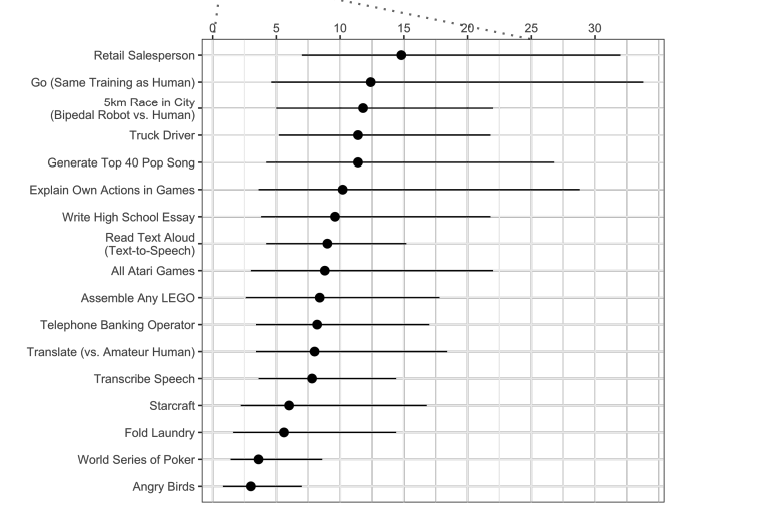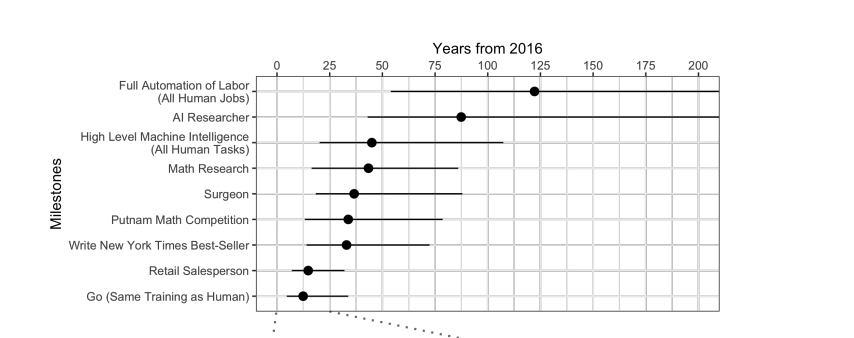A Computer Will Be Better Than You At Your Job Soon, But Not Very Soon Image courtesy of Dan Coulter
When will a piece of software be better at your job than you are? While it’s hard to scientifically quantify things that haven’t happened yet, experts in machine learning predict that in the next 200 years or so, computers or robots will be able to beat humans at our jobs and even most of our hobbies.
The methods of this study [PDF] were not very scientific. Instead, the author asked experts in the field attending a major conference in a survey when they thought certain jobs or tasks would be performed better by AI than people. These ranged from mobile phone games to robots winning bicycle races to jobs like “AI researcher.”
Here’s a chart from the article spanning the next 40 years. The horizontal lines on the graph show the ranges that experts predicted. For example, the chart shows that experts expected machines to be able to fold laundry between two and 14 years from now, with the answer in the middle being six years.

At the time the survey was taken, in 2015, the participants expected that AI might be better than humans at playing the mobile game Angry Birds in one to nine years, and better at the strategy game Go in five to 37 years, with a median of 12 years. Instead, Google’s DeepMind learned how to beat even the best humans at the game within only two years.
Naturally, the AI researchers also predict that their own jobs won’t be performed better for another median 87 years, the longest time frame of any job in the survey.

What humans really need to worry about is when our bosses will decide that artificial intelligence does a “good enough” job, not a better job. Interactive voice agents and chat bots are generally inferior to live people, but they do a good enough job and are significantly cheaper than humans.
In summary, perhaps our college-age readers should consider going into AI research so the robots will keep them gainfully employed a little longer than the rest of us.
Want more consumer news? Visit our parent organization, Consumer Reports, for the latest on scams, recalls, and other consumer issues.

